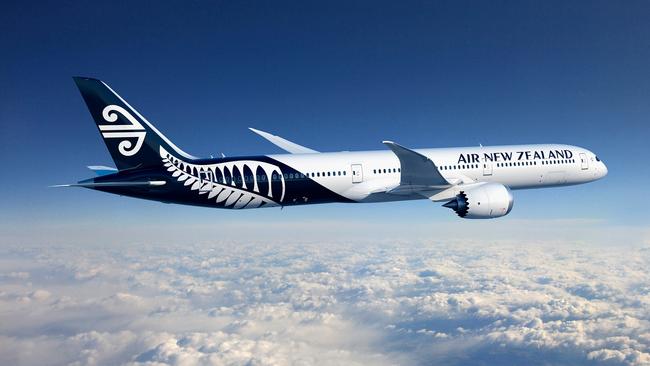Air New Zealand falls 33pc to lowest since 2013
Air New Zealand has seen its half-year profit slump to its lowest level in seven years.

Air New Zealand has seen its half-year profit slump to its lowest level in seven years, on the back of falling passenger demand, a weaker global cargo market and unrest in Hong Kong.
For the six months to December 31, 2019, the kiwi carrier made $NZ198m ($190.2m) in earnings before tax, compared to $NZ217m in the prior period.
After-tax profit was $NZ101m, down 33 per cent on the previous half year, and the lowest since 2013, when Air New Zealand reported a $NZ100m net profit.
As well as the softness in demand, the airline pointed to an increase in operating costs due to significant price increases in domestic air navigation and landing charges, and the weaker New Zealand dollar.
The result came after the carrier forecast an impact of $NZ35m to $NZ75m from the coronavirus, which was expected to see full-year earnings at between $NZ300m and $NZ350m.
Chairman Dame Therese Walsh said she was proud of the way the business was quickly adapting to the evolving situation surrounding the Covid-19 outbreak.
“While the Covid-19 situation is dynamic, we have taken immediate steps to mitigate the impact of softer demand and I am confident that we have the ability to manage the expected short-term impacts effectively,” she said.
New chief executive Greg Foran said that in his first 100 days in the job he would undertake a diagnosis of the airline’s opportunities and risks.
“This will provide the basis for determining potential changes to the future strategic direction of the airline,” said Mr Foran, the former CEO of US retailer Walmart.
“Air New Zealand holds a special place in the hearts of New Zealanders and we take that responsibility very seriously. As such, the diagnostic of the airline will look at how we can drive long-term sustainable outcomes for our customers, our staff, the broader community and our shareholders.”
He reiterated the airline’s 17 per cent reduction in services to Asia, including the suspension of flights to Shanghai and Seoul and cutbacks in flights to Hong Kong and Japan.
“By proactively reducing these services we are better able to manage the cost implications of making late changes to our network and can redirect our most efficient aircraft, the Boeing 787 Dreamliner, to other parts of the network,” said Mr Foran.
Like most other airlines, Air New Zealand has seen its share price nosedive since China banned outbound travel by groups in an effort to contain Covid-19.
The company’s shares have now lost 20 per cent from their January 24 high of $2.88. On Thursday they closed at $2.28, down 1.7 per cent.
Despite the downturn, the Air New Zealand board declared a fully imputed interim dividend of 11c a share, in line with the prior period.
The dividend will be paid on March 25, to shareholders on record as of March 13.




To join the conversation, please log in. Don't have an account? Register
Join the conversation, you are commenting as Logout